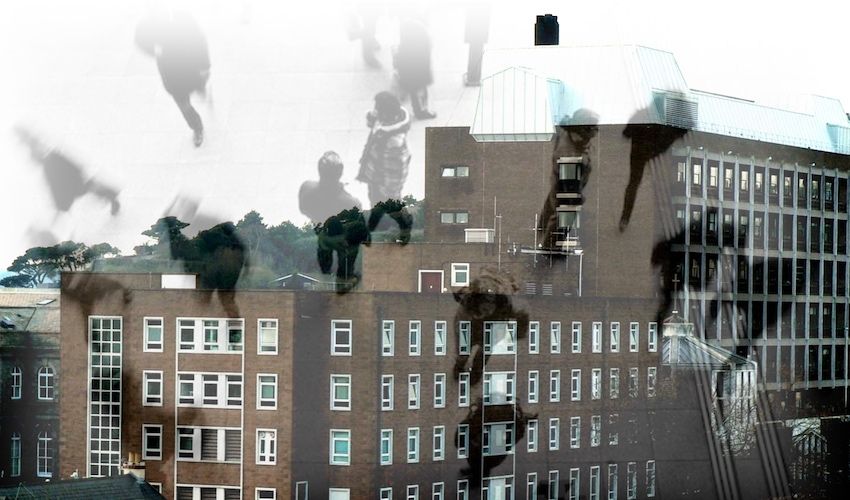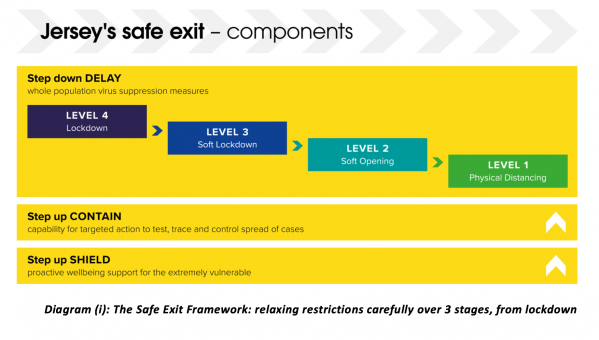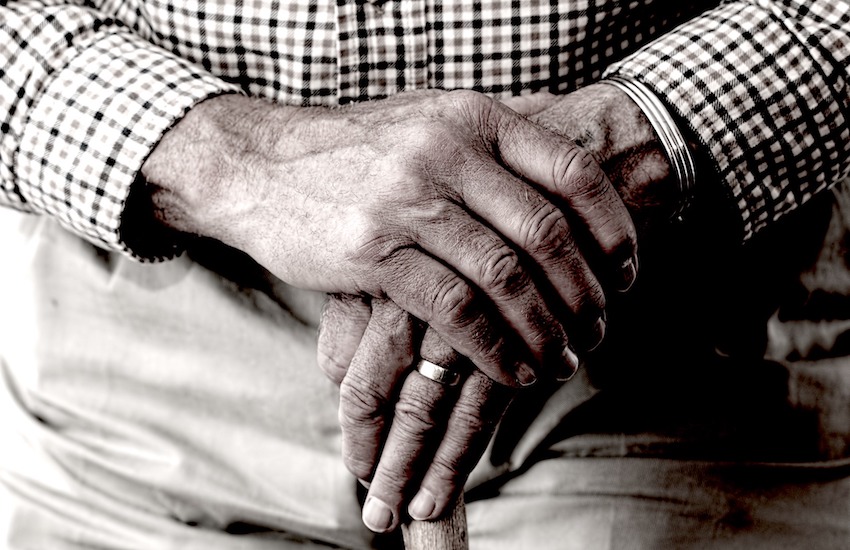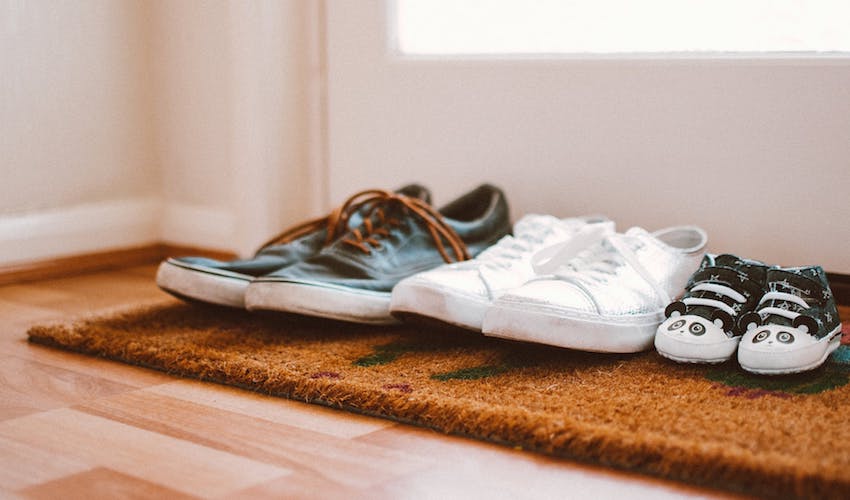


The Government have published their corona virus strategy which also reveals details of how the pandemic has shaped the lives, livelihoods and mental health of islanders.
The strategy was published following an extensive debate in the States Assembly two weeks ago where politicians called for the Government to publish more information about their approach, as lockdown is relaxed.
It details data focusing on the wider health and wellbeing implications of lockdown, as the island’s known active cases fall to low single figures and officials look towards easing restrictions further at the end of next week.

Pictured: Current indications and advice show Jersey is heading for Level 2 of the 'Safe Exit' strategy (Government of Jersey) next Friday.
Express takes a look at the headline figures outlined in the 60-page document and where the island’s health strategy is headed next...
The report provides an update on the latest public health figures. It shows that GPs are handling about one third fewer consultations every day compared to before the pandemic (c.1200 to c.800).
It’s estimated from the antibody sampling studies that about 97% of the island’s population have not yet had the virus.
From late March through to early May, covid-19 was confirmed in nine care homes in total. However, at the time this report was published, it says that “there are now no active cases of covid-19 in care homes across Jersey.”

Pictured: There are no active cases currently in Jersey's care homes.
In addition, 30 more contact tracers have been trained up and added to the team which is now 55-strong, with the expectation that this will scale up further.
Currently, Government say “there is no pressing need to implement digital contact tracing locally” due to the low infection rate, but they add: “We are working with other countries and technology and telecommunications providers to identify the right digital contact tracing app that could help trace more contacts, and trace contacts more quickly, as part of a package of public health measures to interrupt the transmission of any new cases of covid-19.
“We will be able to introduce a new app rapidly, at the point at which Ministers decide upon medical advice that it is appropriate and required.”
The initial data collected for the purposes of this strategy document indicates that islanders’ mental health has been under strain during the public health restrictions. A downturn in patients attending their GP or hospital appointments is also flagged as an area of concern for both physical and mental health matters.
Whilst mental health-related attendance at the General Hospital has dropped from 76 in February of this year (prior to lockdown being imposed) to 33 in April (at the height of the most severe lockdown measures) – other data show that mental health flare-ups have been exacerbated by the crisis.
For example, the Police report that people detained in custody over concerns for their mental health has increased 150%. Between 30 March – 27 May, although general crime is down 37%, domestic incident reports have risen by 10% and 244 incidents of anti-social behaviour linked to covid-19 were recorded.
Of the increase in domestic violence reports, the document predicts that other factors (including increased substance misuse and mental health strain) brought on by lockdown could mean these higher levels persist after the virus restrictions.

Pictured: It's thought that the rise in domestic violence reports could continue beyond the pandemic.
There were also five attempted suicides in the month between March and April of this year. Of these, the report notes that “a number” were “linked to the economic impact of covid-19,” but it does not specify the proportion.
The report states: “HCS [Health and Community Services, ed.] is concerned that negative mental health effects due to social isolation may be particularly pronounced among older adults and households with adolescents, as we know these groups are already at risk of depression or suicidal ideation.
“Research demonstrates that job loss is associated with increased depression, anxiety, distress, and low self-esteem and this may lead to higher rates of substance use disorder and suicide. Mental Health services report that people who have lost income or employment are reporting negative mental health impacts from worry or stress over coronavirus.”
The report also indicates that children’s wellbeing is also affected by the lockdown as they’re exposed to increased risks of online exploitation, food poverty due to not accessing free meals at school, worsening of medical conditions due to fears of attending the doctor or hospital and missed opportunities for intervention for vulnerable children.
Indeed, reports raising child protection concerns and referrals to the Children’s Service have fallen significantly.
From 20 March to 20 May, there were 74 referrals to the Children’s Service, compared with 210 for the same period in 2019 – signifying a reduction of 65%. During the same period, Child Protection reports to the Police dropped from 410 in 2019 to 284 – a drop of 31%.
Safeguarding officials consider that children from disadvantaged families are likely to be most affected by school closures and lockdown.
As at 24 May this year, the total number of people registered as Actively Seeking Work was 2,380 – representing a weekly increase of 50, and an increase of 1,540 on a similar week in 2019.
Further to this, the report indicates that hundreds of families and islanders have fallen into hardship. Prior to lockdown, on 27 March the number of individuals/families referred to emergency housing was in the single digits.

Pictured: Families have fallen into hardship as a result of the lockdown.
This, however, has “steadily increased throughout the lockdown period” and now stands at just over 140 in the week ending 8 May.
During the same period, the number of food parcels distributed has increased from 98 (to 50 households) to 571 (to 262 households).
The Government has commissioned independent data analysts at Statistics Jersey to compile a “statistical snapshot of islanders’ wellbeing, attitudes and behaviours during the public health restrictions.”
Ministers announced this week that it’s hoped the island can move down a level of its ‘Safe Exit’ strategy from 12 June, meaning that more businesses can open and travel restrictions can start to lift.
The document also indicates that the “target period for entry to Level 1 is early July”. Amongst other relaxations, level 1 allows islanders to socialise outdoors with up to 25 people you don’t live with, sports events can resume with no spectators, and small gatherings of up to 10 people are permitted in private homes.
Although currently the target date is early July, the document emphasises that this is “subject to confirmation” and the most up to date medical advice will be taken to make this decision closer to the time.
Comments
Comments on this story express the views of the commentator only, not Bailiwick Publishing. We are unable to guarantee the accuracy of any of those comments.